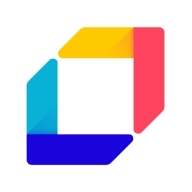


Aqua Cloud Security Platform and Microsoft Defender for Cloud are competing in the cloud security domain. Microsoft Defender for Cloud has the upper hand due to its comprehensive features and tight integration with Azure, which justifies its higher cost.
Features: Aqua Cloud Security Platform excels in container security, vulnerability management, and integrates well with Docker and Kubernetes. Microsoft Defender for Cloud is distinguished by its extensive integration with Azure services, comprehensive threat protection, and regulatory compliance features.
Room for Improvement: Aqua Cloud Security Platform could enhance its legacy system integration, scalability, and analytics dashboard capabilities. Microsoft Defender for Cloud might improve its user interface for easier navigation, streamline its notification process, and expand support for multi-cloud environments beyond Azure.
Ease of Deployment and Customer Service: Aqua Cloud Security Platform is noted for its easy deployment and responsive customer support, appealing to those seeking straightforward implementations. Microsoft Defender for Cloud offers efficient deployment within Azure environments, though customer support effectiveness can vary depending on integration complexity.
Pricing and ROI: Aqua Cloud Security Platform is a cost-effective solution with lower initial setup costs, appealing to budget-conscious organizations. Microsoft Defender for Cloud, despite its higher price, offers a valuable ROI due to its comprehensive feature set and compelling Azure integrations.
| Product | Market Share (%) |
|---|---|
| Microsoft Defender for Cloud | 16.6% |
| SentinelOne Singularity Cloud Security | 4.2% |
| Aqua Cloud Security Platform | 2.1% |
| Other | 77.1% |


| Company Size | Count |
|---|---|
| Small Business | 48 |
| Midsize Enterprise | 22 |
| Large Enterprise | 54 |
| Company Size | Count |
|---|---|
| Small Business | 6 |
| Midsize Enterprise | 1 |
| Large Enterprise | 10 |
| Company Size | Count |
|---|---|
| Small Business | 27 |
| Midsize Enterprise | 10 |
| Large Enterprise | 49 |
SentinelOne Singularity Cloud Security offers a streamlined approach to cloud security with intuitive operation and strong integration capabilities for heightened threat detection and remediation efficiency.
Singularity Cloud Security stands out for its real-time detection and response, effectively minimizing detection and remediation timelines. Its automated remediation integrates smoothly with third-party tools enhancing operational efficiency. The comprehensive console ensures visibility and support for forensic investigations. Seamless platform integration and robust support for innovation are notable advantages. Areas for development include improved search functionality, affordability, better firewall capabilities for remote users, stable agents, comprehensive reporting, and efficient third-party integrations. Clarity in the interface, responsive support, and real-time alerting need enhancement, with a call for more automation and customization. Better scalability and cost-effective integration without compromising capabilities are desired.
What are SentinelOne Singularity Cloud Security's standout features?SentinelOne Singularity Cloud Security is deployed in industries needing robust cloud security posture management, endpoint protection, and threat hunting. Utilized frequently across AWS and Azure, it assists in monitoring, threat detection, and maintaining compliance in diverse environments while providing real-time alerts and recommendations for proactive threat management.
Aqua Security stops cloud native attacks, preventing them before they happen and stopping them when they happen. Dedicated cloud native threat research and the most loved cloud native security open source community in the world put innovation at your fingertips so you can transform your business. Born cloud native, The Aqua Platform is the most integrated Cloud Native Application Protection Platform (CNAPP), securing from day one and protecting in real-time. Aqua has been stopping real cloud native attacks on hundreds of thousands of production nodes across the world since 2015.
Aqua Security Features
Aqua Security has many valuable key features. Some of the most useful ones include:
Aqua Security Benefits
There are many benefits to implementing Aqua Security. Some of the biggest advantages the solution offers include:
Reviews from Real Users
Lizeth Z., Cloud Security Specialist at Telstra, says, “Aqua Security is the most advanced solution in the market for container security. Aqua Security allows us to check for vulnerabilities in the CI/CD pipeline, so application teams can remediate issues before going into production. Aqua Security helps us to check the vulnerability of image assurance and check for malware.”
Microsoft Defender for Cloud is a comprehensive security solution that provides advanced threat protection for cloud workloads. It offers real-time visibility into the security posture of cloud environments, enabling organizations to quickly identify and respond to potential threats. With its advanced machine learning capabilities, Microsoft Defender for Cloud can detect and block sophisticated attacks, including zero-day exploits and fileless malware.
The solution also provides automated remediation capabilities, allowing security teams to quickly and easily respond to security incidents. With Microsoft Defender for Cloud, organizations can ensure the security and compliance of their cloud workloads, while reducing the burden on their security teams.
We monitor all Cloud Workload Protection Platforms (CWPP) reviews to prevent fraudulent reviews and keep review quality high. We do not post reviews by company employees or direct competitors. We validate each review for authenticity via cross-reference with LinkedIn, and personal follow-up with the reviewer when necessary.